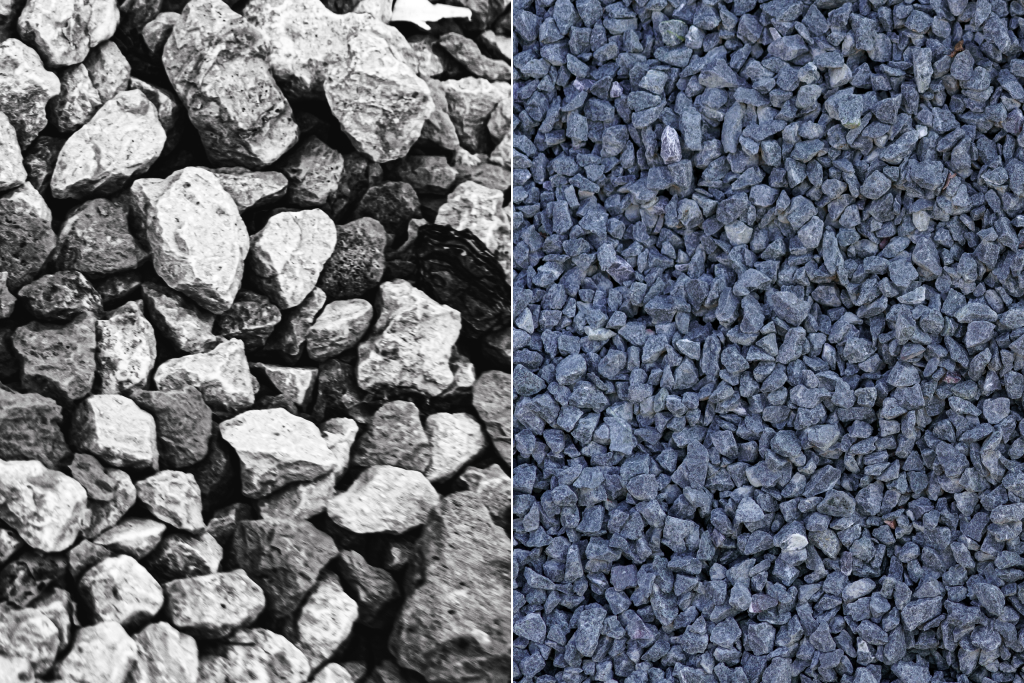
When planning a commercial construction or landscaping project, the choice between crushed stone and gravel can significantly affect long-term durability, aesthetics, and budget. While both materials are commonly used in commercial settings, each has distinct advantages depending on your project goals. Whether you’re sourcing wholesale crushed stone in Westminster or exploring options for wholesale rock and gravel in Henderson, this guide will help you make an informed choice.
The primary difference lies in how the materials are produced.
Because of its jagged shape, crushed stone is often more stable and compactable, whereas gravel offers smoother aesthetics and better drainage in certain contexts.
For projects requiring excellent drainage, gravel usually takes the lead. The smooth, round edges of gravel allow water to flow freely between the particles, making it ideal for French drains, drainage layers, or areas prone to water pooling.
That said, crushed stone can still be used effectively in drainage applications—especially if you’re using larger sizes like #3 or #4 crushed stone. However, crushed stone tends to compact more, which may slow water flow in comparison.
You can, but crushed stone is typically better for paver bases—especially in commercial settings where high traffic is expected. Crushed stone, due to its angular nature, locks into place more firmly, creating a stable foundation. This minimizes shifting and uneven settling, especially under heavy loads such as delivery trucks or commercial equipment.
If you’re building a commercial walkway, loading dock, or parking pad, crushed stone is the preferred option for long-term performance.
Yes, crushed stone is generally more durable, especially for structural and high-load applications. Its sharp edges allow it to interlock and form a more stable surface, reducing movement under pressure.
If you’re planning a commercial driveway, road base, or foundation fill, crushed stone offers superior longevity and support. Gravel is better suited for decorative uses or projects where ease of replacement and flexibility are priorities.
The amount of crushed stone you’ll need depends on the depth and application. Here’s a quick reference:
Use a crushed stone calculator or contact Pillar Aggregates for assistance in calculating your specific needs. Our team provides accurate volume estimates for all types of commercial and industrial projects.
The best gravel size depends on the layers:
For parking lots and heavy traffic areas, a well-compacted base of crushed stone topped with smaller gravel ensures long-lasting durability.
Crushed stone is particularly effective in commercial applications that require high load-bearing capacity or structural stability, such as:
Because of its strength and compaction properties, crushed stone is the go-to material for professional-grade construction.
Pricing varies by region, material type, and order volume. However:
At Pillar Aggregates, we offer competitive bulk pricing for both gravel and crushed stone in Westminster and Henderson. For larger commercial orders, custom quotes and contractor discounts are available.
Absolutely. Crushed stone’s angular particles make it much more compactable than rounded gravel. This makes it ideal for:
Gravel can still be compacted, but not as tightly—so for long-term support, crushed stone is the better choice.
If you’re looking for wholesale crushed stone in Westminster or need wholesale rock and gravel in Henderson, Pillar Aggregates is your trusted partner. We supply high-quality landscaping and construction materials at scale, ensuring:
We proudly serve homeowners, commercial developers, and landscape professionals across Colorado with top-tier materials and service. Contact us today to learn more about what we can do for your site or project!




